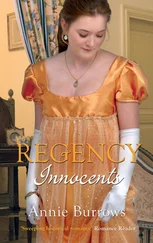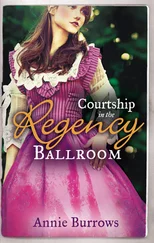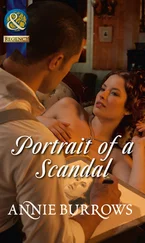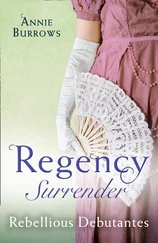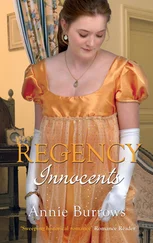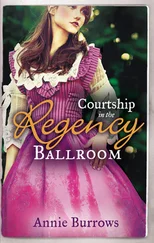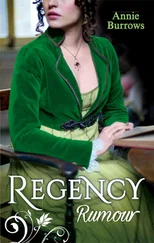‘It would be a callous person who did not.’
She was still on her high ropes, he realised, trying to teach him his duty, to make him feel guilty. He decided not to rise to the bait. ‘Enough to take on their welfare?’ he queried.
‘The two oldest girls, Beth, who is fourteen, and Matty, who is a little over a year younger, are my employees. You met them. I am told you gave them half a crown.’
‘So I did. Your mill hands, shut out because they were too polite not to answer me when I spoke to them.’
‘One cannot let tardiness go unpunished,’ she said. ‘But I have told Mr Brock that, in future, anyone who arrives late will not be locked out, but will lose half an hour’s pay for every five minutes. After all, I am the loser when their looms stand idle all day.’
He laughed. Her good deeds seemed to be tempered with self-interest. But was that really true? She seemed genuinely concerned about the boy, and the look of tenderness on her face when she had been comforting him had showed a gentler side to her nature that stayed with him.
‘There is nothing wrong in that,’ she said, stung by his laughter. ‘Everyone must do the work they are given.’
‘Even me,’ he said.
‘Yes. It was fortunate you were working or you would not have been in a position to save Tommy’s life. It was a brave thing to do.’ It choked her to say it, but it was nothing but the truth and she was always one to give credit where it was due.
‘I am a hardened soldier, Miss Cartwright, used to carnage, but you did not flinch when I handed the boy over to you. Other young ladies would have swooned away.’
She laughed. ‘And then you would have had two patients instead of one and no one to ride for the doctor. I am not such a fribble, my lord, and I never have been.’
He could readily believe it. He stopped and bent to cup his hands for her foot. She sprang astride the saddle, giving him a glimpse of a well-turned ankle, settled her feet in the stirrups and took up the reins.
‘Good day to you, my lord,’ she said, trotting away, leaving him standing looking after her, stroking his chin in contemplation.
He could not make her out. Was she still the spoiled, imperious chit of his earlier acquaintance or had she changed? Until this afternoon he would have said she had not changed one iota, but would the spoiled hoyden have concerned herself with the problems of a poor family? While they had been waiting for her, Mrs Biggs had sung her praises, telling him how generous she was and how without her they would be in dire need. He was unsure if the woman was deliberately trying to make him feel guilty or was too simple to realise how her words sounded. While his father had been ill and his mother too mortified by their straitened circumstances to go out and about, Miss Cartwright had been free to act the lady of the manor and perhaps she was not inclined to let that go. He chuckled to himself. If he had married her when his father suggested it, that was just what she would have been.
The devil of it was that their paths were bound to cross, living so close, and it was wearying to be for ever sparring, especially if they both wanted to do good by the villagers. They had to find some kind of harmony to their day-to-day encounters. He would do well to adopt a soft approach and avoid argument, leaving that for when the real battle began.
He turned and strode back to the Hall. There was a little more furniture in the house now, a proper dining table, a few chairs, a desk and some beds, but it was still minimal and the marble-floored entrance hall contained nothing but a small table and a faded Sheraton chair. He had instructed builders to make repairs to the roof where it let in the rain and to make good broken window sashes, but he had not yet put in hand a full-scale refurbishment. He wondered if he ever would. There he was, an aristocrat who had to watch every penny, trying to do justice to all his people, while that hoyden had more money than she knew what to do with. Paying lawyers would not trouble her at all, but it would drain his own minimal resources. His head told him to let it go, but his own stubborn pride resisted. The profits from that mine would make all the difference, not only to the restoration of the Hall, but to the tenants and villagers who looked to him to keep their dwellings in good repair. Was ever a man in such a coil?
Chapter Three
Charlotte, riding home, berated herself for a traitor. She had sworn the man was her enemy and yet there she was, conversing with him as if he had never said those hateful words six years before. Six years was a long time to hold a grudge, but what had he done since returning to make her think he had regretted his outburst? Nothing. He had accused Papa of cheating the Earl out of his land, had intimated he meant to continue with that ridiculous lawsuit, and had even gone up to the mine and poked about as if he owned it. It was enough to make Papa turn in his grave.
Papa. Had he realised the storm he would unleash the day he had said to her, ‘It is time we found you a husband, Charlie’?
She knew him well enough to know that he had not said that on a whim, but had been thinking about it for some time. ‘I hope, Papa, you are not thinking of sending me to London for a Season,’ she had said. ‘I tell you now, I should hate it.’
‘Why so?’
‘Mincing about in lace and ribbons, fluttering a fan and making foolish remarks about the weather to coxcombs with no more than a hen’s brain between them. Besides, it would only be the prospect of my dowry that would persuade them to address me at all.’
He had laughed at that. ‘I can see it would not serve, but we do not need to go from home to find just the fellow. Young Viscount Temple is a well set-up young man and, according to his father, on the lookout for a bride.’
‘The Viscount! He would never consider me.’
‘On the contrary, I am assured he has already expressed an interest. According to the Earl, he has been admiring you ever since he came back from university. In any event, the Earl is of a mind to hold a ball and we are invited. Play your cards right, my dear, and one day you will be a countess.’
In those days a ball at Amerleigh Hall was not to be missed if one was lucky enough to have one of its gilt-edged invitations. The grand ballroom, the music and dancing, the food and wine were always of the highest order. Her father had sent her off with his sister, her Aunt Harriet, to buy a ballgown and all the fripperies needed and no expense spared. The trouble was, and she had realised it as soon as she entered the ballroom and seen all the other ladies, was that her aunt’s idea of fashion was sadly out of date. She had tried to make a mincing, blushing doll out of her, covering her in pink lace and silk rosebuds and having her wayward hair forced into tight corkscrew curls, which did not suit her at all. She had stuck her head in the air and pretended not to mind, but, at seventeen, it was a pose difficult to maintain. After stumbling over a gavotte with a pimply youth whose name she could not remember, she had, as soon as the music ended, excused herself and left the room. It was then, standing in a dim corridor, she had heard those dreadful, never-to-be-forgotten words.
They had clouded her life. From simply being a little tomboyish, a young girl who enjoyed the countryside, but who was ready to be courted, to fall in love in the prescribed manner, looking forward to being a wife and mother, she had become the woman she was: a hardheaded, determined businesswoman who had no time for the niceties of social intercourse, especially with the likes of the new Earl of Amerleigh.
Damn him!
She left Bonny Boy with Dobson and went into the house through a side door, intent on regaining her room without meeting any of her servants. She knew she looked a pickle. Her hair had escaped its pins and there was dirt and blood all down the bodice of her habit and she did not feel like being questioned. Once in her room, she crossed the floor and stood looking out of the window towards Amerleigh, hidden from view by the ridge of Browhill. Meeting the Earl again was making her question her whole life.
Читать дальше

